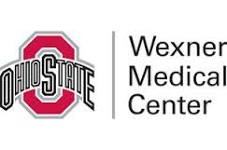Early Treatment of Cardiomyopathy in Duchenne Muscular Dystrophy
| Status: | Completed |
|---|---|
| Conditions: | Cardiology, Neurology, Orthopedic |
| Therapuetic Areas: | Cardiology / Vascular Diseases, Neurology, Orthopedics / Podiatry |
| Healthy: | No |
| Age Range: | 7 - Any |
| Updated: | 10/2/2013 |
| Start Date: | February 2012 |
| End Date: | March 2015 |
| Contact: | Beth McCarthy, BSRT(R)(CV) |
| Email: | beth.mccarthy@osumc.edu |
| Phone: | 614-688-8020 |
Early Treatment With Aldosterone Antagonism Attenuates Cardiomyopathy in Duchenne Muscular Dystrophy
Duchenne muscular dystrophy (DMD), the most common muscular dystrophy, leads to skeletal and
cardiac muscle damage. Treatment of pulmonary complications has improved survival; however,
heart muscle disease or cardiomyopathy has emerged as a leading cause of death, typically by
the third decade. Although myocardial changes begin early, clinically significant heart
disease is rarely detected in the first decade of life. Consequently, DMD cardiomyopathy
frequently goes unrecognized (and untreated) until advanced (and irreversible).
Current DMD cardiovascular care guidelines recommend beta-blockers and angiotensin
converting enzyme inhibitors (ACEIs) when decreased ejection fraction (EF) is noted by
echocardiography (echo); however, this strategy has not significantly improved outcomes. Our
team has recently made a breakthrough in a mouse study, showing in a model that causes the
same heart muscle disease in humans with DMD adding an old medicine traditionally used for
high blood pressure and late-stage heart failure can actually prevent heart muscle damage.
Because of this drug's proven safety in both children and adults, it is ready to be studied
immediately in an RCT in patients with DMD to hopefully show, as we did in mice, that we can
prevent the devastating consequences of heart muscle damage.
Duchenne Muscular dystrophy (DMD) is a deadly X-linked disease affecting 1 in 3,500 males.
DMD patients suffer significant disability due to skeletal myopathy and excess death due to
cardiomyopathy. Current guidelines advocate initiating cardioprotective treatment with
evident global cardiac dysfunction, yet this treatment paradigm has not improved survival
much beyond the third decade of life. Potentially promising approaches like gene therapy
will take considerable time to improve outcomes. Recently completed studies in a DMD mouse
model at our institution indicate that existing drugs known as aldosterone antagonists,
typically reserved for advanced heart failure patients, preserve skeletal and cardiac muscle
function at 80% of normal. Clinical studies at many centers including ours have shown that
high-resolution, noninvasive cardiac magnetic resonance (CMR) detects subclinical myocardial
fibrosis and abnormal regional function prior to global functional abnormalities. Combining
findings from these preclinical and clinical studies, we plan to execute a randomized,
controlled clinical trial (RCT) of eplerenone plus background therapy vs. background therapy
alone in patients with DMD. We expect that the aldosterone antagonist eplerenone compared to
standard therapy significantly delays progressive cardiomyopathy and skeletal myopathy using
highly reproducible imaging biomarkers selected for efficient sample size design, to
ultimately reduce disability and death.
Inclusion Criteria:
- DMD patients age 7 years and older (and able to complete cardiac MRI without
sedation) with preserved left ventricular (LV) systolic function and abnormal heart
muscle by late post-gadolinium imaging (LGE)
Exclusion Criteria:
- renal insufficiency (GFR <40 mL/min/m2)
- non-MR compatible implants (e.g. neurostimulator, AICD)
- severe claustrophobia
- allergy to gadolinium contrast
- prior use of or known allergy to epleronone
- use of potassium-sparing diuretics
- serum potassium level of >5.0 mmol/L
We found this trial at
3
sites
The Ohio State University, Wexner Medical Center Located in Columbus, The Ohio State University Wexner...
Click here to add this to my saved trials
3333 Burnet Avenue # Mlc3008
Cincinnati, Ohio 45229
Cincinnati, Ohio 45229
1-513-636-4200

Cincinnati Children's Hospital Medical Center Patients and families from across the region and around the...
Click here to add this to my saved trials
Los Angeles, California 90095
Click here to add this to my saved trials
